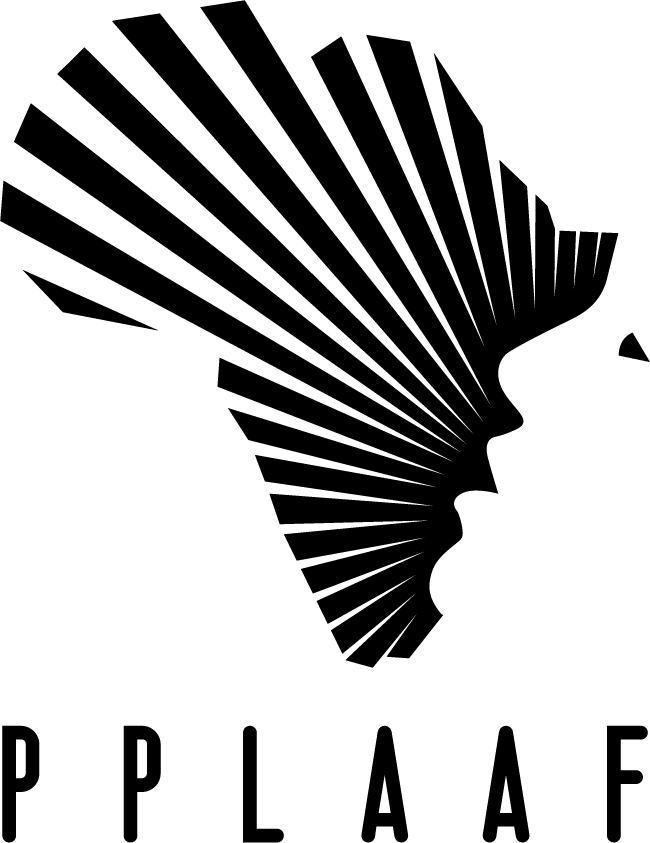Published in 2020
Relevant legislation:
- Constitution of the Republic of Zambia
- Public Interest Disclosure (Protection of Whistleblowers) Act 4 of 2010
- Anti-Corruption Commission Act 3 of 2012
- United Nations Convention Against Corruption (UNCAC) 2004
- Southern African Development Community Protocol
Summary
The Republic of Zambia enacted the Public Interest Disclosure Act, also known as the Protection of Whistleblowers Act, in 2010. The Act provides for the disclosure of conduct which is harmful to the public interest in both the public and private sectors. It also creates a framework for the reporting, investigating and ultimately prosecution of complaints of corrupt and irregular practices. The Act conforms with the requirements of the United Nations Convention Against Corruption (UNCAC) which acknowledges the role whistleblowers play in the fight against corruption, and how it advances and enhances transparent practices and moral conduct which can stem the destabilising effects of corruption and fraud in Zambian society.
Zambia enacted the legislation in line with the provisions of Article 32 of UNCAC, which requires signatories to the convention to take measures in accordance with their domestic legal systems to protect persons who make disclosures of corruption from retaliation and reprisals, because of giving testimonies in corruption matters. The convention proposes that relocation of witnesses and non-disclosure of their identity and whereabouts of such individuals are essential in allowing the witnesses to feel secure in exposing corruption which undermines the growth of democracy and destabilises the social, political and economic foundations of these often vulnerable countries. Zambia has also established an Anti-Corruption Commission to assist in the fight against stemming the tide of corrupt practices.
Whistleblower Laws And Policy
The investigating organs established in terms of the Public Disclosures Act are:
- The Office of the Auditor General
- The Anti-Corruption Commission
- The Drug Enforcement Commission
- The Judicial Complaints Authority
- The Office of the Public Protector (previously known as the Investigator-General)
- The Public Police Complaints Authority.
The head of any government agency to whom disclosures of misconduct are reported is obligated under the law to investigate such allegation of misconduct and where there is credible evidence institute proceedings in line with the provisions of the Zambian Criminal Procedure Code and Part 1 of the Penal Code.
The Anti-Corruption Act of 2012 effectively repealed and replaced the previous Corrupt Practices Act of 1980, which did not contain some of the more progressive provisions found in the Public Disclosures Act of 2010.
The Public Disclosures Act requires civil society to conform to the new stringent provisions and that within 6 months of its passing, private companies were required to establish frameworks and procedures setting out the protections of whistleblowers within their organisation. The intent of the legislature was that companies could not seek to hide behind confidentiality clauses and exclusion clauses drafted into their contracts of employment with employees who subsequently make disclosures exposing graft and corruption in their organisations.
Weaknesses And Needed Reforms
Corruption is closely aligned to political power in Africa. The extent to which laws are enforced and complied with is commensurate with the political will to abide by the statutes.
In the 2019 Corruption Perception Index report by Transparency International, which ranks 180 countries by their perceived levels of public sector corruption according to experts and businesspeople, Zambia was listed as the 113th least corrupt nation. In terms of its standing within the 15-member Southern African Development Community, only 4 other states; namely Angola, Mozambique, Madagascar and Zimbabwe, have a lower ranking.
The Anti- Corruption Act makes provision for the establishment of the Anti-Corruption Commission, the agency tasked with leading and implementing the anti-corruption strategy of the Zambian government.
One of the flaws in the legislation is the level of executive control exercised in the appointment of the Director-General, who serves at the request of the president of Zambia. The provisions of the previous act required a resolution of the National Assembly and a tribunal appointed by the Chief Justice for the removal of the Director-General from office for failure to perform his duties, whether arising from infirmity of body or mind or any other cause or misconduct in terms of section 10(2) of the now-repealed Anti-Corruption Act 1996. The current legislation places excessive control in the appointment and removal of the Director-General in the executive at the expense of parliamentary and judicial oversight.
A further problem is the requirement that the Anti- Corruption Commission consult with any “appropriate authority”, per section 47(4)(b) of the Act, such as the Director of Public Prosecutions, on the decision to prosecute any offences, which leads to the spectre of political interference rearing its head.
The Director of Public Prosecutions (DPP) has absolute discretionary power in terms of section 59 to consent to prosecution of offences under Part ii of the Act. Where a prosecution has been instituted without the DPP’s consent, the accused person so charged shall not be called upon to plead as per section 59(3), which renders the proceedings void. Clearly, this is a hindrance and an indication of the lack of political will to enforce the provisions of the law and illuminates the intent to politically control the actions of the Anti-Corruption Commission and the scope of its power.
A serious flaw in the Public Disclosure Act is found in the provisions of section 13 of the act. Disclosures deemed to be frivolous, malicious, vexatious or in bad faith run the risk that the investigating authority, be it the Anti-Corruption Commission or any other institutions as set out in the law, may decline to prosecute the subject of the disclosure. Section 13(3) imposes criminal liability for disclosures such as those alluded to, with sanctions of a fine and imprisonment up to seven years. Such provisions serve only to foster a culture of silence and prevent persons from disclosing information on corruption and malpractice where they encounter them in their employment environment.
Secrecy Laws
The media in Zambia operates in a repressive environment due to draconian laws enacted by the colonial administration and retained by successive governments since independence. Laws such as the State Security Act, The Public Order Act and the Emergency Powers Act are all laws that have a restrictive effect on the manner in which the media report, especially in matters involving alleged state corruption and misconduct.
Very often party cadres are also deployed to intimidate the media fraternity, and authorities are not averse to suspend, cancel or revoke the operating licences of media institutions deemed to be critical of the State.
Media And Speech Laws
Freedom of expression and the media are constitutionally guaranteed rights under the Constitution, but the Zambia National Broadcasting Corporation (ZNBC), Zambia Daily Mail and The Times of Zambia fall within the direct editorial control of the State.
Publications critical of government policies are prone to harassment, even to the extent that the independent The Post newspaper was forced into closure and liquidation due to a demand by the state tax authorities the newspaper settle arrear taxes in the amount of $6.1 million.
The Telecommunications Act of 1964 is another piece of legislation that hampers the freedom of the media extensively. In terms of the act, it established an authority to regulate the radio frequency spectrum, with the authority to approve licences falling under the purview of the Minister of Information and Broadcasting Services. This means that any radio stations deemed to be critical of the government operate under threat of having their licences revoked and effectively seeing the institution cease operations, thereby placing the livelihood of staff at risk. The collateral effect of this is that journalists then practise a form of self-censorship, effectively restricting the free flow of information and thereby retarding the disclosure of corruption and misconduct and killing off the culture of whistleblowing from taking root.
Way Forward
There needs to be a de-emphasis on the criminalising aspects of the legislation as it relates to the persons making the disclosures. Very often the reporters of corruption do not have access to the resources which would automatically shield them from reprisals, and the state agencies which are the investigating authorities would be their first options for sanctuary in the event of retaliation.
Punitive provisions such as section 116(1)(d) of the Zambian Penal Code which make it an offence to speak out or report in a manner deemed to be critical or “could prejudice opinion regarding ongoing judicial proceedings” need to be removed from the statute books.
People will only be predisposed to report misconduct if there is a feeling that their disclosure will be accepted, investigated and acted upon with the necessary objectivity and discretion enunciated in the law. The protections set out in the legislation must be widely publicised and reported so that it fosters a culture of transparency and security, thereby enabling an environment within which public activism, since that is what whistleblowing is, becomes the norm rather than the exception.
The commitment to transparent governance free from corruption must be activated in the way in which whistleblowers and other reporters of malpractice are protected from reprisals and this will assist in the fight to eradicate the culture of corruption.
Knowledge, support and action centers
Transparency International Zambia (TIZ)
Transparency International is a global movement based in over 100 countries fighting against corruption and the effects thereof. The organisation focusses on exposing systems and networks that enable corruption and seeks greater transparency, accountability and integrity at all levels and across all sectors of society.
- Address: Stand no 3880 Kwacha Road, Olympia Park, PO Box 37475, Lusaka, Zambia
- Tel: +260 211 2900080
- Fax: +260 211 293649
- Email: tizambia@zamnet.zm
- Website: http://www.tizambia.org.zm
Anti-Corruption Commission of Zambia
The Ant-Corruption Commission of Zambia is the agency mandated under the Anti-Corruption Act no.3 of 2012 to spearhead the fight against corruption in Zambia. Its main function is to investigate and prosecute cases of suspected corruption, conduct campaigns to raise public awareness of the dangers of corruption and building public support in the fight against corruption; and putting mechanisms in place preventing corruption. It has 9 provincial offices throughout the country tasked with carrying out its mandate.
- Address: Anti-Corruption House, Cha Cha Cha Road, PO Box 50486, Lusaka, Zambia
- Tel: 5980 Toll free
- Email: info@10.51.11.113
Office of The Auditor General of Zambia
The Auditor General is mandated to assist Parliament to hold to account and call to account all persons entrusted with the management of public funds and resources and to ensure Parliament’s ultimate supervision and control over all aspects of public finance. It is a partnering institution in the fight against the scourge of corruption.
- Head Office: Stand No. 7951, Haile selassie avenue, Long Acres, PO Box 50071
- Tel: +260 211 265018
- Email: info@sh.gov.zm




